For farewell - resign. To the 40th anniversary of the death of L. I. Brezhnev
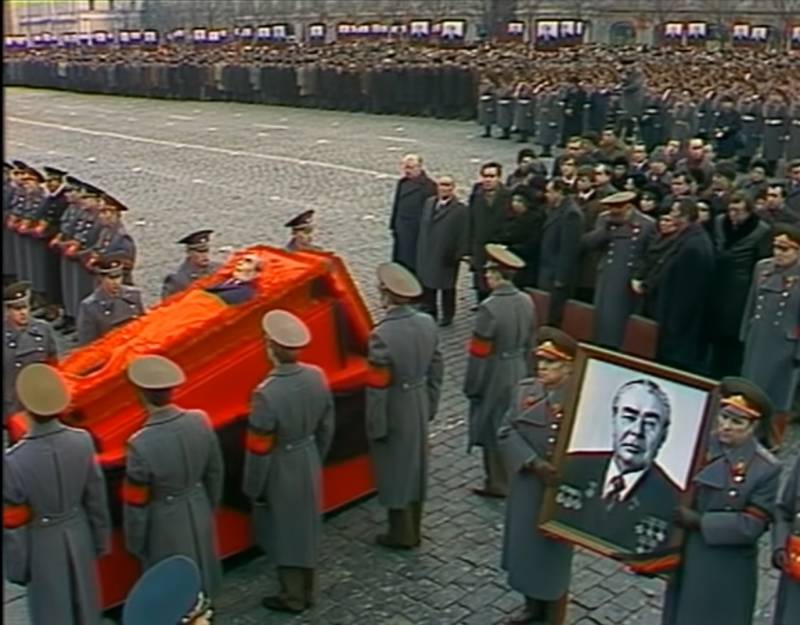
Remember not everything
The death, the protracted farewell (from November 10 to 15, 1982) with real, not ostentatious mourning throughout the country, and the funeral of Leonid Ilyich Brezhnev, General Secretary of the Central Committee of the CPSU, 40 years ago marked the first stage in the normalization of Soviet-Chinese relations.
For two decades before that, there was not just tension - there was a very tough confrontation with repeated military conflicts. What was at least one Damansky worth (Remembering Damansky: how not to forget the "forgotten battles"), but there were more (Why they forgot the "second Damansky"?).
The world regularly shook due to fears of a big war between the communist superpowers with nuclear arsenals, but the neighbors agreed one way or another. Huang Hua, Foreign Minister of the People's Republic of China (in 1977-1982), arrived in Moscow from Beijing to say goodbye to Brezhnev.
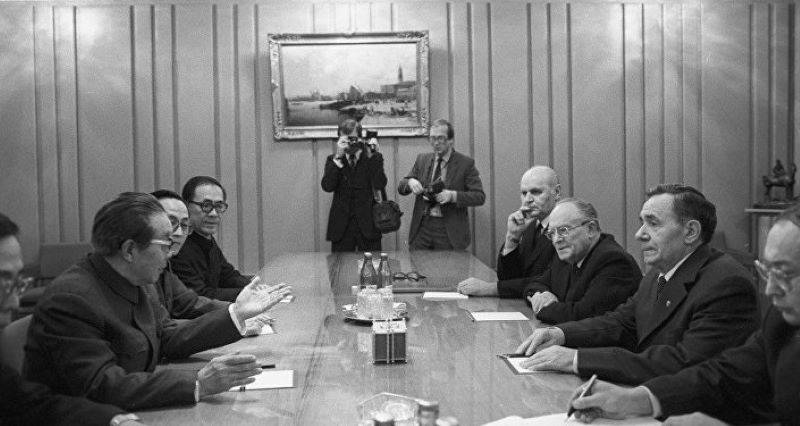
He honored the memory of the long-term Soviet leader, the first among the "great elders", as they did not hesitate to say and write then in the Celestial Empire, and expressed condolences to his family and the Soviet leadership. Huang Hua, having held short talks with the new General Secretary of the CPSU, Yu. V. Andropov, also marked the beginning of a substantive dialogue on Soviet-Chinese interstate normalization.
Chinese leadership since the early 80s. minimized dubious ideological demands on Moscow, accepting everything that is in the USSR as an irreparable given. Emphasis was placed on settling territorial issues with the Soviet Union and on detente on the Sino-Soviet border.
"Outwardly open" China
It must be admitted that this fit in perfectly with the strategy of external openness of the PRC, announced by Deng Xiaoping at the XII Congress of the CPC, held in the first ten days of September 1982. In this regard, the Chinese side, unexpectedly for the Soviet side, expressed their desire to pay tribute to Brezhnev and honor his memory.
Moscow, of course, agreed. Even more unexpected for the Soviet leadership were Huang Hua's official statements during his meetings with Yu. V. Andropov and A. A. Gromyko. More precisely, the Chinese minister characterized Brezhnev as "a tireless fighter for peace", "an outstanding leader of the USSR" and finally "the main Soviet initiator of the normalization of our interstate relations."
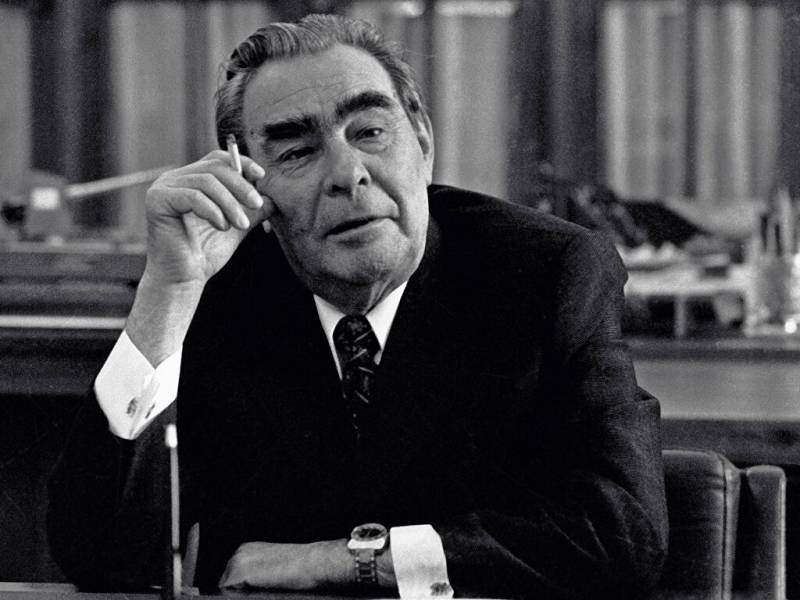
Comrade Hua also noted Brezhnev's personal merits during the Great Patriotic War, as well as Brezhnev's correction of "many Khrushchev's mistakes." At the same time, the Chinese minister, to the surprise of his Soviet colleagues, proposed leaving intractable disputes on the mutual border “for later” and focusing on solving less difficult border issues.
In Moscow, unexpectedly easily agreed with this approach. At the same time, as expected, Huang Hua was guided in Moscow by the instructions of the top leadership of the PRC. And it was unequivocally planned in advance. More precisely, on April 16, 1982, Deng Xiaoping asked N. Ceausescu, who was in Beijing, to convey to Brezhnev the main Chinese conditions for interstate normalization.
What were these special Chinese requirements? Far from soft:
- the withdrawal of troops and the evacuation of weapons from the Soviet-Chinese and Mongolian-Chinese borders;
- the withdrawal of Vietnamese troops from the "Democratic Kampuchea";
- the resignation of the pro-Vietnamese leadership of Kampuchea;
- the withdrawal of Soviet troops from Afghanistan;
- changing the border on the border rivers in favor of the PRC.
The border is not shut
Such, so to speak, ultimatum, hardly realistically feasible, Nicolae Ceausescu promptly handed over to the leadership of the USSR. Then still led by Brezhnev. It was these unprecedented conditions that Huang Hua repeated at his meeting with A. A. Gromyko back in the summer of 1982. Again, while still alive and capable, contrary to rumors and rumors, the General Secretary of the Central Committee of the CPSU.
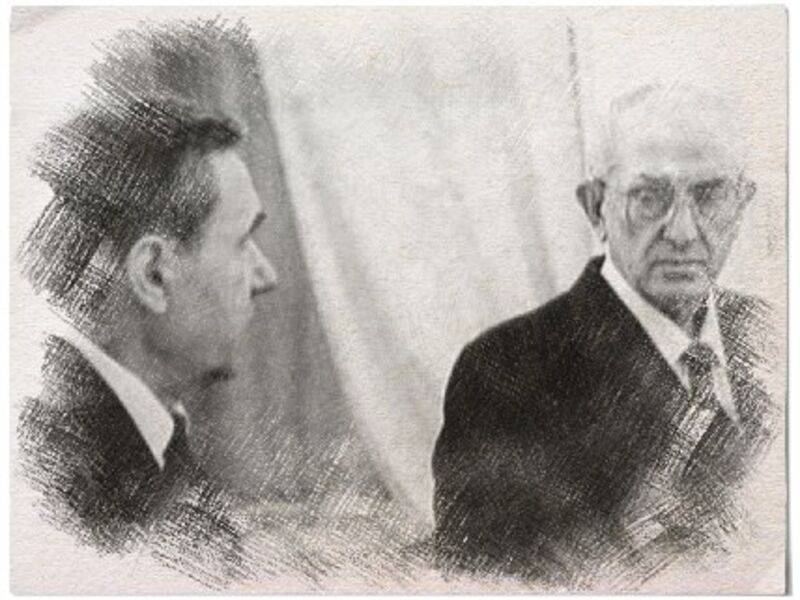
The head of the Soviet Foreign Ministry (in this rare photo, he is with Yu. V. Andropov), in response, firmly refused to discuss any issues not directly related to the USSR and China. At the same time, Gromyko noted that the Soviet side would take into account Beijing's position on all the problems mentioned. And already after the death of Brezhnev, since mid-November 1982, Soviet-Chinese negotiations began to regularize the status of a number of sections of the mutual border.
However, there was still no talk of any serious softening of Moscow's position. It will be later, much later. In the meantime, in Beijing, shortly after Brezhnev's funeral, Huang Hua began to be accused of exceeding his authority in negotiations in Moscow. More precisely, the leadership of the PRC “backdated” came to the conclusion that it went too far with praises to Brezhnev.
Why? The answer lies on the surface - because his successors, that is, in fact, Andropov and Gromyko personally, did not accept the Chinese conditions for interstate normalization. And in general, in the Politburo, the preponderance, and unambiguous, then was on the side of the "old hawks", as they were already called by the Western press.
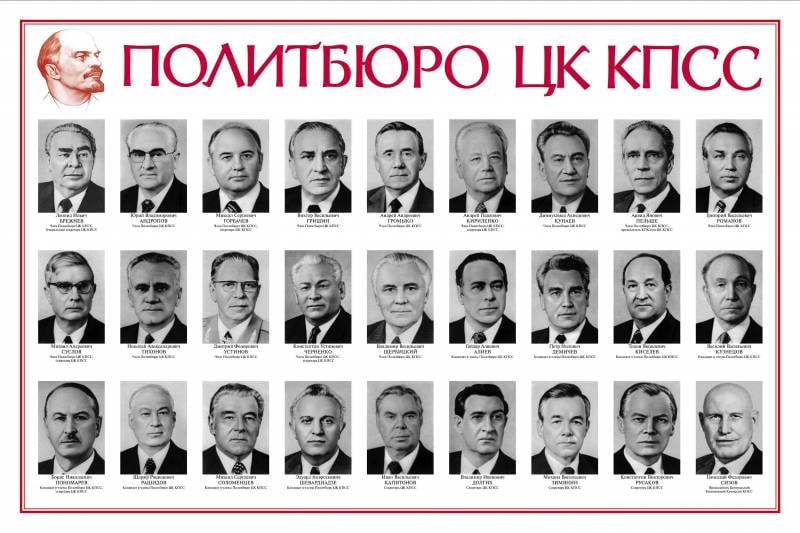
But in the literal sense, the Chinese chose their minister Huang Hua as the scapegoat for all omissions and even mistakes. The minister tried to prove that it would be inexpedient to present all the above-mentioned demands to Moscow at once. And it is better to do it in stages and avoid "semi-ultimatum" formulations.
But they did not listen to him in Beijing, and already on November 19, 1982, Huang Hua was fired. He was replaced by Wu Xueqian (Chief of the PRC Foreign Ministry until 1987 inclusive), a supporter of the normalization of Sino-Soviet relations on the basis of the "single" mentioned requirements.
Well, almost all of them were eventually carried out by the Soviet side - shortly before the collapse of the USSR ...
Information